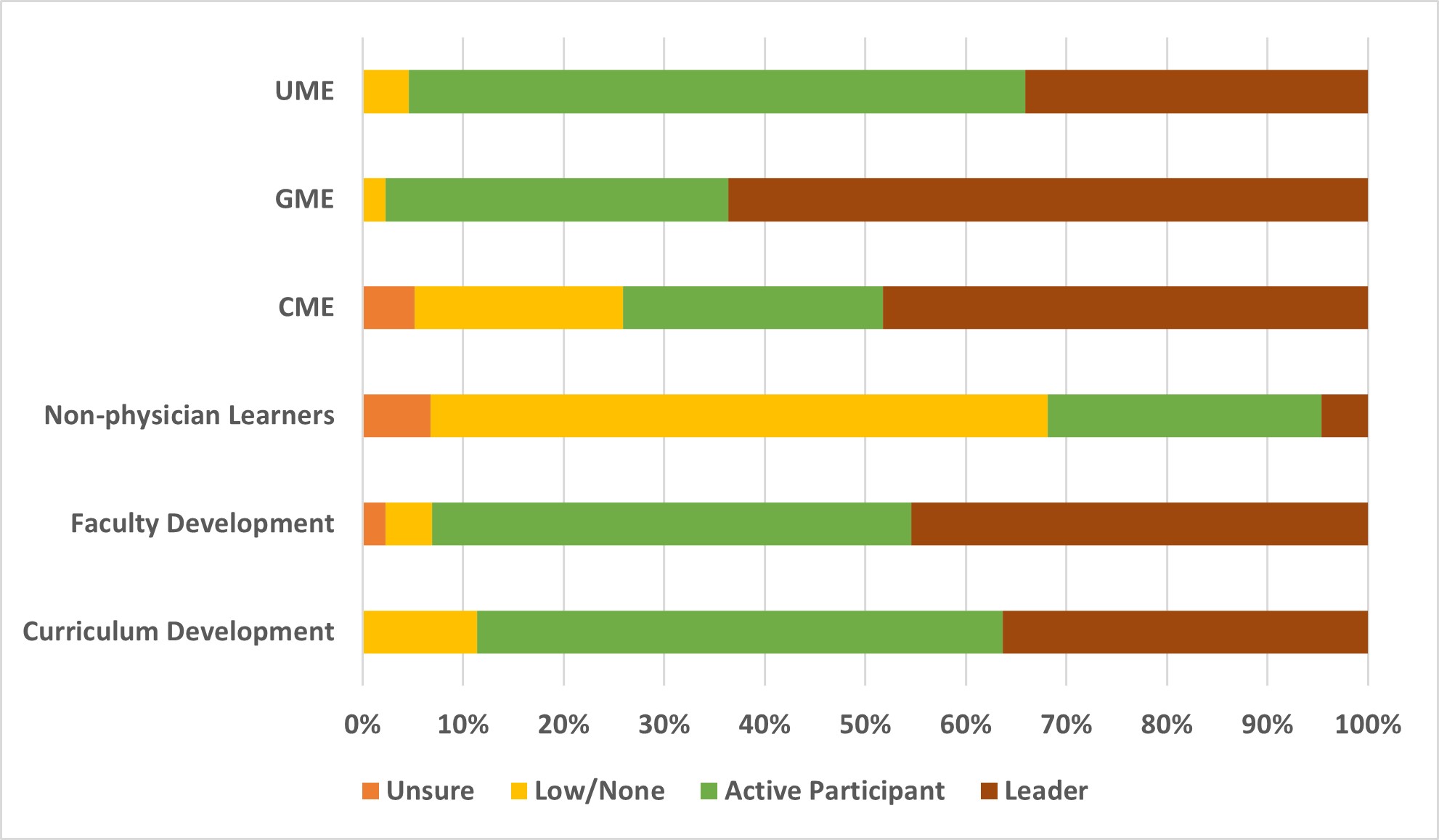Medical Education
Session: Medical Education 3
555 - Vision, Values and Vices: The role of the VCE in educational leadership
Friday, May 3, 2024
5:15 PM - 7:15 PM ET
Poster Number: 555
Publication Number: 555.248
Publication Number: 555.248

Catherine D. Shubkin, MD, FAAP, HEC-C (she/her/hers)
Associate Professor of Pediatrics
Geisel School of Medicine at Dartmouth
Lebanon, New Hampshire, United States
Presenting Author(s)
Background: The last decade has seen a significant increase in the number of Vice Chairs of Education (VCE) within Pediatric departments, however, their roles, responsibilities and resources remain unclear. Previous studies have been limited by low response rate and have not included the perspectives of VCEs.
Objective: We surveyed current Pediatric VCEs to define their roles, responsibilities, dedicated time and resources available to them.
Design/Methods: We conducted a cross-sectional study of Pediatrics VCEs. VCEs were identified through triangulation of three sources: a review of the ACGME accreditation data base (ADS) of pediatrics programs and program websites; a survey of active program directors of ACGME accredited programs; and a database of VCEs maintained by APPD. The survey instrument was created in accordance with best practices as described in the medical literature. Descriptive statistics were used to analyze data.
Results: Of 65 VCEs sent the survey, 44 responded (68%). 64% had a written job description for their VCE role, and only 25% thought that their departmental roles and responsibilities were very clear. Most (87%) had educational leadership roles in addition to VCE. The level of involvement in overseeing educational programs and activities varied among VCEs. The majority considered themselves leaders in providing oversight of GME education (64%), while fewer led faculty development (46%), curriculum development (36%), continuing medical education (32%) and undergraduate medical education (34%). (Fig. 1) VCEs most commonly led educational research (59%), mentoring of faculty (52%), and resident recruitment (46%). (Fig 2) Almost all (98%) were leaders or active participants in improving the clinical learning environment related to diversity, equity and inclusion. The median amount of dedicated time was 0.2 (IQR 0.1-0.38); however, the amount that VCEs felt was required was 0.25 (IQR 0.2-0.5). Only 41% of VCEs had been offered professional development and/or mentorship specific to their role and they identified data on job descriptions and resources to support education as the information most useful to them in their role.
Conclusion(s): The roles and responsibilities of VCEs in Pediatrics varies among institutions. Mentorship, professional development and additional dedicated time are important needs which could enhance the effectiveness of VCEs. This survey identifies commonalities across institutions that can advance efforts to create a core job description for Pediatric VCEs and inform opportunities for professional development.

.jpg)
